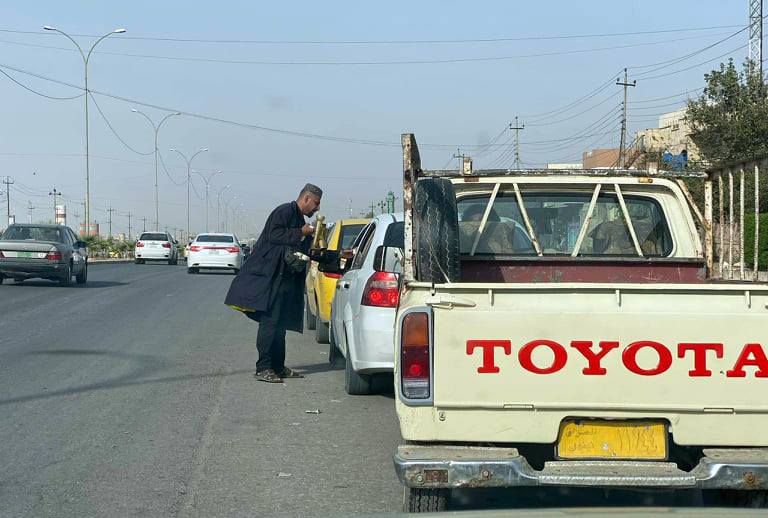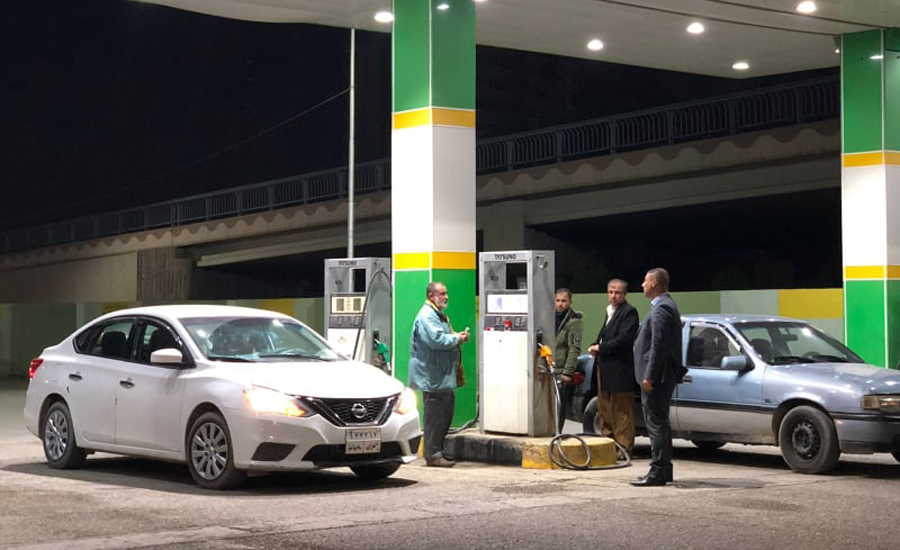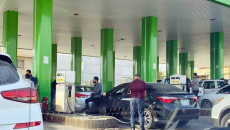The Iraqi government has decided to raise cost of gasoline in some towns of the four Iraqi provinces adjacent to the Kurdistan Region, according to a letter addressed to the directorates of petroleum products distribution in those provinces.
The decision was directed by the Oil Products Distribution Company of the Iraqi Ministry of Oil to the provinces of Kirkuk, Ninewa, Diyala and Salahadin, and stipulated the provision of government-subsidized normal gasoline to filling stations in the areas adjacent to the Kurdistan Region within the borders of those governorates at a price of 650 (USD0,44) Iraqi dinars instead of 450 (30 cents).
According to information obtained from several sources by KirkukNow, the decision is not effective yet.
An official source in the Directorate of Oil Products Distribution in Kirkuk told KirkukNow, "We have received the letter, which stipulates the provision of government-subsidized gasoline in petrol stations at a price of 650 (Iraqi) dinars, yet it has not set a specific date for implementing the decision, so it has not yet entered into force."
"The decision needs more clarifications, because we do not know the exact petrol stations intended. For example, does it mean the areas with common borders in the Kara Incir (Qarahanjir) sub-district of Kirkuk, or where?" the anonymous source wondered.
Some districts and sub-districts in the disputed areas are subject to the authority of the Kurdistan Regional Government, but it is administratively affiliated with those four provinces, which the Iraqi government supplies with gasoline at a price of 450 dinars.
Disputed territories extend from Khanaqin in Diyala province on the border with Iran via Kirkuk up to Shingal, home to the Ezidi community, in Ninewa on the border with Syria where Baghdad and Erbil compete to expand their territories.
Subsidized fuel policy is followed since many years in Iraq which had a central state-run policy in all sectors up to 2003, when Saddam Hussein was ousted, per which the Iraqi government through the public sector was providing all services.
In Iraqi Kurdistan region, most of petrol stations are private where gasoline costs double compared to state-run petrol stations all over Iraq excluding the Kurdish region.
The cost which is soaring up day after day due to oil prices in global markets has pushed motorists in Kurdish towns adjacent to the disputed territories to fill tanks of their vehicles, a matter pushed Iraqi officials to limit their subsidization for this sector in those areas.

Local officials complain the instructions are vague as no area is specified in order to implement the new plan.
"It is not permissible for the price of gasoline in the entire province to be 450 dinars, while the same quality of gasoline in some districts and districts within the same province to be 650 dinars," said a source in the Directorate of Oil Products Distribution in Kirkuk.
Drivers are also confused where they can find gas for same cost they used to refill in state-run stations.
Aram Rahman, a motorist from Kirkuk, says that he heard about raise in the price of gasoline but he does not know what areas the decision will include.
"If the decision includes all provinces, it will leave a negative effect."
Directors in Ninewa said they alternative is to allocate some stations at the suburbs on the borders with the Kurdish region in order to avoid long queues in towns.
Rafaat Simou, assistant of Ninewa governor for administrative affairs, stressed that he was not aware of the decision.
"With the aim of reducing crowds in some gas stations, we decided to allocate four stations outside the city of Mosul to provide drivers with gasoline at a price of 650 dinars so that the drivers of the Kurdistan Region and Ninewa Plains to benefit from it, and to avoid congestion inside the city of Mosul.”
In Ninewa province, ach motorist can fill in his tank for 450IQD for a liter of gasoline one time in a day but there are no rules or restrictions to fuel more than once from different stations. In other provinces such as Kirkuk, the local administration has allocated a weekly portion for each private and public cars by coupons which are traded.
Iraq holds the second-largest oil reserves following Saudi Arabia but years of conflict and sanctions have left its refineries in dire straits, with the country now relying heavily on imports of oil products despite daily export of millions of barrels of crude oil.






